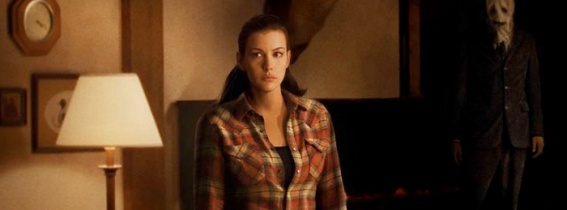Review: Blindside
About the most incongruous thing about Blindsight may be its attractiveness. It’s gorgeous. Obviously not the sheen of a well-shot drama, neither is this the nature-as-achingly-beautiful-compositions of Baraka’s ilk. No, Blindsight is just shooting on the fly, with very little in the way of cameraperson-as-rock-star; but just because of its setting, the picture often manages a […]

About the most incongruous thing about Blindsight may be its attractiveness. It’s gorgeous. Obviously not the sheen of a well-shot drama, neither is this the nature-as-achingly-beautiful-compositions of Baraka’s ilk. No, Blindsight is just shooting on the fly, with very little in the way of cameraperson-as-rock-star; but just because of its setting, the picture often manages a simple, effortless grandeur that’s hard to force.
Why this should be a sticking point, of course, is because almost everyone in Blindsight is utterly sightless and have been for most or all of their lives.
Blindsight. Understand: these kids aren’t just blind blind. They’re BLIND blind. Culturally, personally, even spiritually – these are people whose blindness not just shapes them, but defines them in society.
And just so, it must necessarily always be at the forefront of their onscreen presence: in a film where the majority of the protagonists never see the camera, the uneasy sensation of creepy voyeurism – that old documentary bugbear – is never far off.
A jerk-reaction against this possibility may be the reason for the film’s somewhat cloying tone toward the whole –let’s not be unclear about this, HELLUVA gutsy – endeavour. In making sure it’s on the side of the angels, Blindsight falls a little short.
In many ways, what this is a story about is the Western characters’ gradual transition from gung-ho knock-the-bastard-off bravado into a rather sweet, humble understanding of the Buddhist understanding of Suffering; but because the pic’s so goldurn set on making sure you know how great it is that these awesome dudes took these brave little tykes on a really grand adventure, that payoff is hinted at rather than delivered.





















